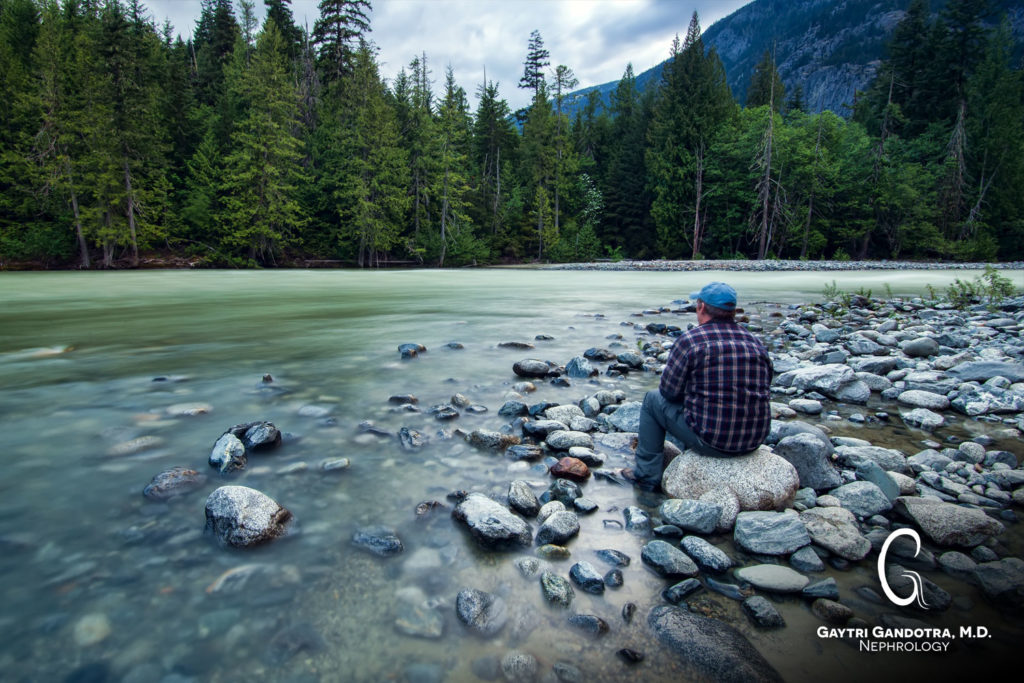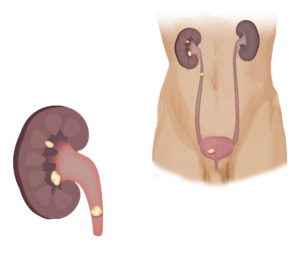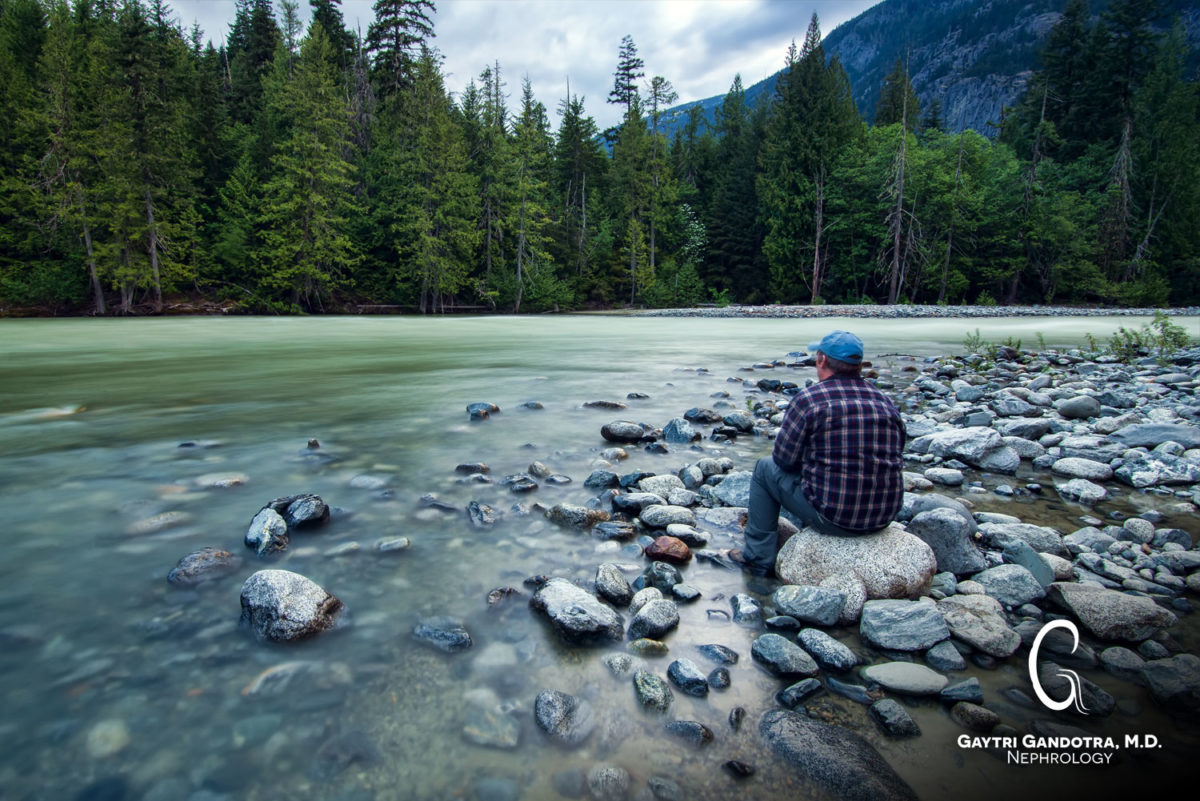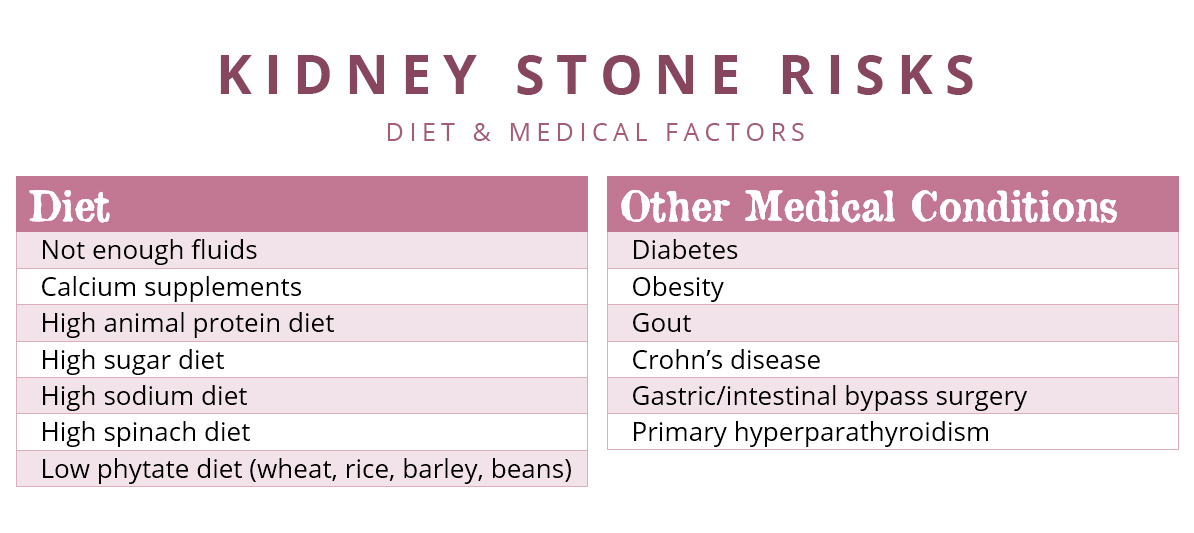Most of us have at least heard of kidney stones. Perhaps you may have passed one. Either way, it’s always good to learn how to prevent kidney stones from ever forming in the first place. If you ask those who have passed a stone you will learn that it is a terribly uncomfortable experience.

How Do Kidney Stones Form?
There are many theories as to how a stone is formed. Our kidney filters many solutes which are elements such as sodium, phosphate, uric acid, potassium.
Crystals form when these solutes clump together. The crystals become larger and larger over time to form a stone. Our goal is to catch them early when they are still small.
The body naturally produces stone inhibitors called citrate. This is the body’s natural way of protecting itself from developing kidney stones. If you don’t have enough citrate, stone formation accelerates. Not drinking enough water can contribute kidney stones, as they tend to form quicker in concentrated urine.
Kidney Stone Risk Factors
There are risk factors for different types of kidney stones. The charts below list some of the risk factors:
Early Detection Helps!
It’s important to identify how a stone will clinically present.
 Here are some classic symptoms of stone formation:
Here are some classic symptoms of stone formation:
- Migrating Pain: The pattern depends on the location of the stone. Pain usually begins in the flank, migrates down to the abdomen, and eventually ends up around the groin right before the stone passes.
- Blood in the Urine: The stone can cause damage on its way through your urinary tract. Please call your nephrologist immediately if you ever notice blood in the urine, as it may be a symptom of something more serious: (714) 435-0150
- Nausea or Vomiting
- Frequent/Urgent Urination
If you notice any of these symptoms, please contact your doctor!
Treating Kidney Stones
If you notice any of these symptoms, please contact your doctor!
- Kidney Stones - There are many theories as to how a stone is formed. In general, crystals are initially formed within the nephron. They get anchored and gradually increase in size to form a stone. Each type of kidney stone has different risk factors. Calcium Oxalate Stones Uric Acid Stones Staghorn Calculi This is genetic and is suspected in those who form stones ...
Measures Known to Prevent Kidney Stones
Tip #1: Drink More Water
Ensure that you are well hydrated. Dehydration is the #1 risk factor for developing a stone.
Tip #2: Avoid Dietary Salt
Equally important is to cut out salt! Sodium and Calcium are ‘buddies’. The less salt you eat, the less calcium is reabsorbed by the body.
Look at food labels for sodium content and track how much you’re consuming a day. Processed food has a lot of added salt, so you may find the number to be quite surprising. For those with kidney stones, their doctor may prescribe them a diet limiting salt to about 2400 mg or less a day!
Tip #3: Consult with Your Doctor Before Taking Dietary Supplements
Daily vitamins can be really helpful for your overall health. But some can do more harm than good! Make sure to check with your physician before starting any dietary supplements.
Tip #4: Consult Your Doctor About Other Dietary Changes
In addition to too much salt, several other dietary factors contribute to stone formation. It’s best to consult your doctor about how to prevent kidney stones by changing dietary habits.
You must visit your nephrologist for further treatment and preventative measures. If you have had one before, we can agree that you don’t want to experience it again.


